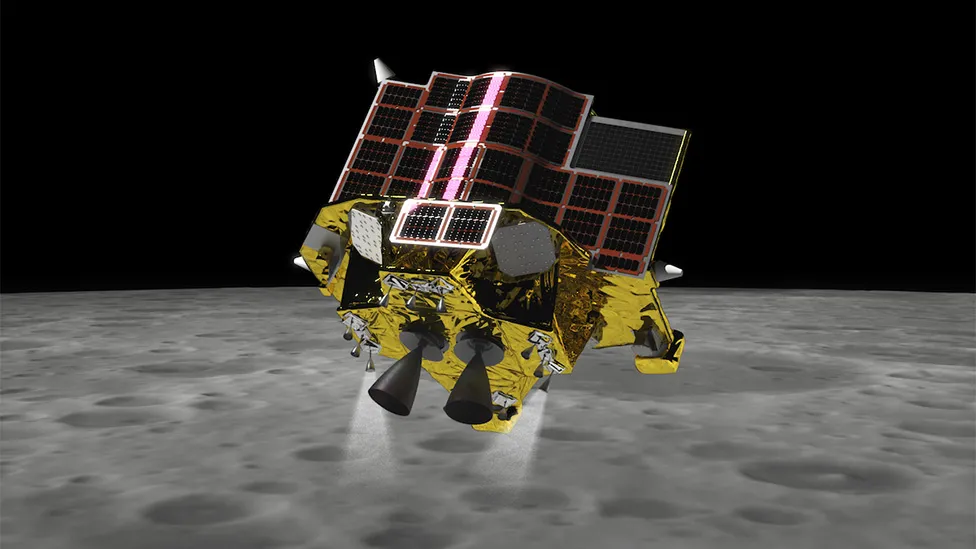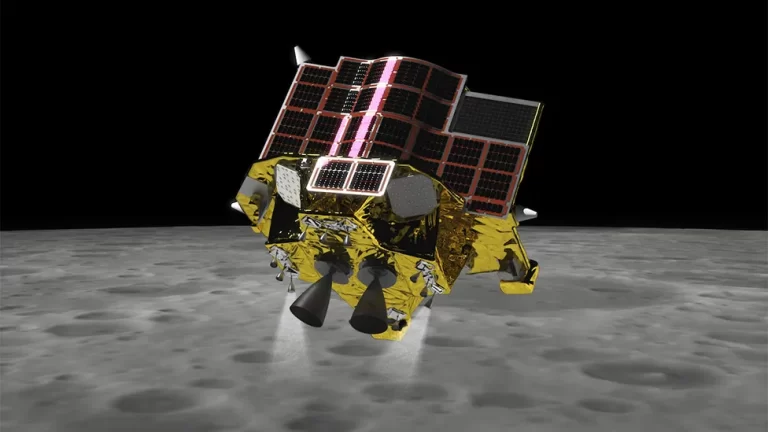
Japan’s robotic SLIM spacecraft touched down on the lunar surface this morning, January 19, notching a huge success for Japan.
This made the Asian country the fifth nation to land softly on Earth‘s nearest neighbor, the moon. Yamakawa Hiroshi, President of the Japan Aerospace Exploration Agency (JAXA), said during a post-landing press conference today;
“First and foremost, landing was successful. We should be able to access the lunar surface. I believe that there is a path opening to that now.”
However, after the joy of seeing its Slim spacecraft successfully touch down on the Moon, engineers from the Jaxa, the country’s space agency, quickly realised all was not well.
For reasons not yet fully understood, the robot’s solar cells are not working. This means all surface operations are currently being run off SLIM’s batteries and the lander may have just a few hours of life ahead of it.
Officials are currently prioritising activities. They’ve turned off heaters and are now pulling down pictures from the craft and data that will tell them how well the landing software worked.
The agency won’t immediately give up on SLIM if it does fall silent. It’s always possible the solar cells have somehow become oriented in a way that prevents them from seeing the Sun.
Asked at a news conference what could be done to try to fix the solar cells, Hitoshi Kuninaka, Director-General of the Institute of Space and Astronautical Science and vice-president of JAXA, said: “The battery will last several more hours, those hours will be the remaining life of Slim”, but they are trying to keep the “status quo”.
Kuninaka said they don’t want to do anything that is “too excessive”, but there is still hope for SLIM to generate electricity again, when the solar angle changes. He said;
“The solar angle will change every month and the sunlight on the Moon will change. When the light from Earth shines from a different direction it could hit the solar cell, so we are considering this and we are hoping for SLIM to regain power.”
SLIM (short for “Smart Lander for Investigating Moon”) launched last September, along with an X-ray space telescope called XRISM. The scope deployed into low Earth orbit shortly after liftoff (and recently sent home its first test images), but SLIM set out for more distant celestial shores.
